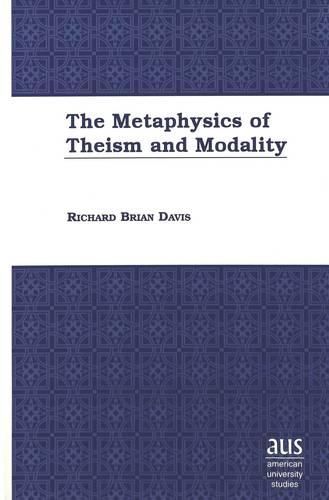Readings Newsletter
Become a Readings Member to make your shopping experience even easier.
Sign in or sign up for free!
You’re not far away from qualifying for FREE standard shipping within Australia
You’ve qualified for FREE standard shipping within Australia
The cart is loading…






In this book, Richard Brian Davis explores various attempts to solve the Dependence Problem - the problem posed by the following question: How can necessary truths stand to God in a one-way relation of dependence when neither they nor God could have failed to exist? Critics charge that this problem is insoluble. Davis argues at length that the most powerful and promising contemporary solutions to this problem - those offered by Linda Zagzebski, Brian Leftow, Thomas V. Morris, and William Mann - are all fatally flawed. In making his case, Davis treats the reader to helpful and interesting discussions of counterpossibles, broadly logical necessity, identity statements, as well as the divine attributes of sovereignty, aseity, and simplicity. He concludes with what is perhaps the most forceful and sustained defense of the claim that necessary truths can stand to God in an asymmetrical relation of causal dependence.
$9.00 standard shipping within Australia
FREE standard shipping within Australia for orders over $100.00
Express & International shipping calculated at checkout
In this book, Richard Brian Davis explores various attempts to solve the Dependence Problem - the problem posed by the following question: How can necessary truths stand to God in a one-way relation of dependence when neither they nor God could have failed to exist? Critics charge that this problem is insoluble. Davis argues at length that the most powerful and promising contemporary solutions to this problem - those offered by Linda Zagzebski, Brian Leftow, Thomas V. Morris, and William Mann - are all fatally flawed. In making his case, Davis treats the reader to helpful and interesting discussions of counterpossibles, broadly logical necessity, identity statements, as well as the divine attributes of sovereignty, aseity, and simplicity. He concludes with what is perhaps the most forceful and sustained defense of the claim that necessary truths can stand to God in an asymmetrical relation of causal dependence.